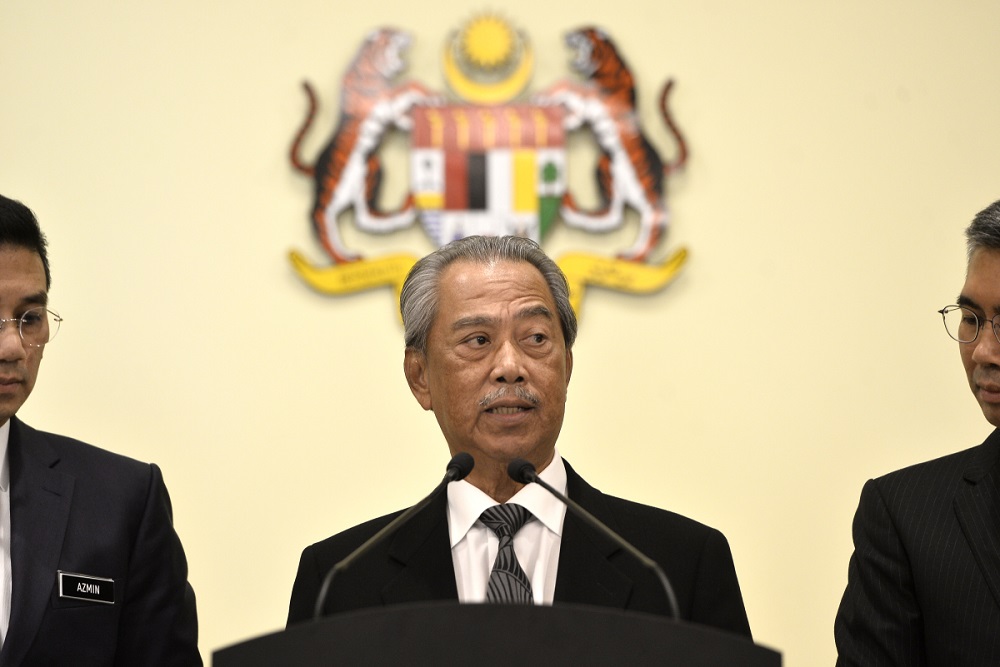KUALA LUMPUR, March 23 — Three economists have criticised Tan Sri Muhyiddin Yassin's administration in its war against the Covid-19 pandemic, pointing out that Putrajaya is still worrying about a balanced budget instead of reacting urgently.
In a critical letter written in response to the government’s latest fiscal measures, these prominent economists suggested that the Muhyiddin administration has failed to show leadership at a time when national unity is paramount, and has been ineffective in dealing with the crisis.
“We are deeply concerned by the seeming lack of clear and coherent initiatives by the Government in light of the growing crisis,” Muhammed Abdul Khalid, Nungsari Ahmad Radhi, Hamdan Abdul Majeed said in a joint letter.
“We were taken aback by the Treasury’s traditional balanced budget perspective as the rest of the world, especially East Asia, responds with a strong sense of urgency, recognising that this time it is different.”
The criticism followed concerns over what they felt was the Perikatan Nasional government’s inability to outline a coherent fiscal stimulus plan, and seeming hesitation to borrow more at the risk of collapsing an economy devastated by the novel coronavirus outbreak.
They opined that the Muhyiddin-led government must recognise that the nation is in a uniquely dire situation comparable to “war time”, and that it must do “whatever it takes” to prevail, including to splurge on spending to prop up the economy.
Muhyiddin has been widely criticised for his decision to tap into private retirement funds to help jobless workers cope with the economic fallout from the Covid-19 crisis, instead heeding calls to directly inject more cash into households.
“Normal considerations — of managing fiscal constraints, budgetary deficits, debt ceilings, growth targets or ratings agencies — do not apply,” the trio said.
“Malaysians come first. We should mobilise all the country’s resources to do whatever it takes.”
Muhyiddin, however, did tell a press conference on Monday that his government would unveil more stimulus packages by month-end.
Today, the Pagoh MP announced a slew of measures meant to line people’s pockets, among them over half a billion ringgit of additional budget for the Ministry of Health, and allowing all contributors below the age of 55 to withdraw up to RM500 from their Employee Provident’s Fund Account 2 savings.
But the announcements were met with little enthusiasm. Some economists said the measures fell short of the scale needed to address the unfolding crisis, which is expected to result in massive layoffs.
Unions on the other hand called the EPF withdrawal scheme a hoax meant to embellish the government’s image, when actually it forces workers to tap into their retirement funds to survive the pandemic.
Muhammed, Nungsari and Hamdan themselves outlined several propositions. In the economic front, the trio said there is an urgent need to provide support for small businesses particularly.
SMEs are collectively the nation’s biggest employers, employing close to ten million with a collective borrowing of up to RM300 billion from banks.
“Support needs to be directed to ensure that businesses can weather the situation we are in,” the economists said.
“Alleviating their concerns allows more breathing room for our SMEs as well as the people they employ... although measures to protect SMEs were announced as part of the Economic Stimulus Package, more can be done to ensure continued access to financing.”
As the pandemic takes a severe toll on global trade, economists have revised the country’s yearly growth to just above two per cent.
Muhammed, Nungsari and Hamdan said they expect the economy to contract this year regardless of efforts, predicting massive layoffs and businesses shutting down.
And the situation has made transparent communication more critical, they said, as they drew attention to the mounting public anger over the messaging blunders of several PN ministers since the Movement control order was enforced on March 18.
“This is the time when trust is most needed; should the government decide to withhold information of crucial aspects of the health crisis for whatever reason, the breach of trust and credibility will have untold consequences,” they said.




















